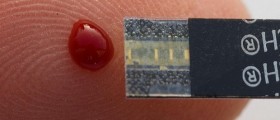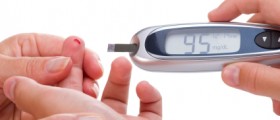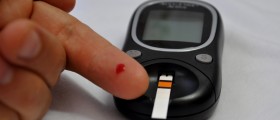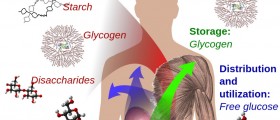
Diabetes - Overview
Diabetes is a chronic and serious medical condition which can lead to many complications unless treated properly and on time. Even when the level of glucose is brought under control, patients suffering from diabetes may develop numerous complications of the illness. In initial stages diabetes leads to certain symptoms and signs which can be recognized by a well experienced doctor.
There are two types of diabetes, type 1 (insulin dependent diabetes) and type 2 (insulin independent diabetes). Early symptoms and signs of these two types can be similar. This can be easily explained by the fact that in type 1 diabetes mellitus the pancreas simply does not produce insulin any more and the sugar cannot enter the cells and in type 2 diabetes there is an insulin in the body but the receptors of the cells do not react to insulin stimulation. In both cases glucose stays in the blood stream and since it cannot enter the body cells its amount in the blood increases.
Early Symptoms of Diabetes
There is a variety of early symptoms and signs of diabetes mellitus. The most prominent symptoms are excessive hunger and excessive thirst. Patients suffering from this illness feel hungry even though they consume proper amount of food. The food is adequately absorbed and it reaches blood stream. But the sugar simply cannot enter the body cells and they report the brain they are hungry, hence the person feels hunger and eats more. Patients suffering from diabetes feel excessive thirst as well and they urinate frequently. This is also symptomatic for the onset of the illness.
One more early sign of diabetes is weight loss. Even though patients eat the same or even more they lose weight progressively. This sign can be explained by improper utilization of glucose in the body.
Furthermore, blurry vision is one more early symptom of diabetes. Problems with vision are typical for all patients suffering from diabetes. They occur in the beginning of the illness and tend to progress over time.
Patients who have not been diagnosed with diabetes yet can complain about fatigue, weakness and general lack of energy. The lack of energy is once again associated with insufficient supply of body cells with glucose.
Patients suffering from diabetes are more susceptible to infections. For example, women may suffer from recurrent and frequent vaginal thrush prior they are diagnosed with diabetes. Even the process of wound and cut healing takes longer than in healthy people.
All the previous symptoms and signs may drive a doctor to suspect on diabetes mellitus and perform an easy test to confirm the condition. Once the definitive diagnosis is set patients can be prescribed an adequate treatment.

















Your thoughts on this
Loading...